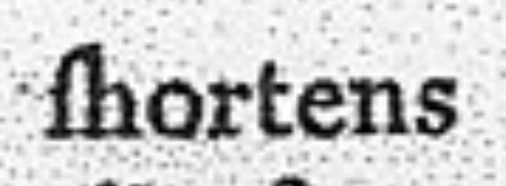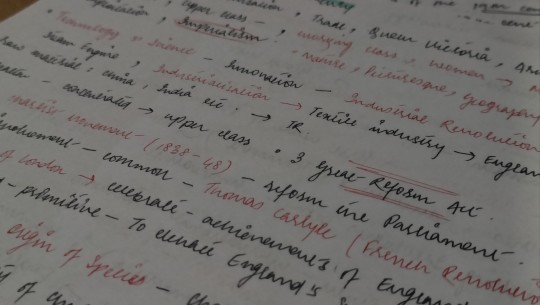#history of english
Text
The Czechs would like to have a chat

Edit: since this post blew up: This was intended as a sharing of a funny blunder I found in a book, and to prompt the sharing of the stories of other marginalized languages.
It was NOT intended as an invitation for people to a) call all English speakers stupid and imply they all think like this and b) trashtalk the authors, who, apart from this singular paragraph, wrote an immensely valuable resource for anyone interested in the history of English and arguably have achieved more within the linguistic community than any of us will.
6K notes
·
View notes
Text

The #ConnectedAtBirth #etymology of the week is SKI/SCIENCE/SHODDY #ski #science #shoddy
#ski#skiing#science#shoddy#etymology#wotd#connectedatbirth#words#language#linguistics#word nerd#wordnerd#history of the english language#history of english#historical linguistics#lingcomm#lingblr
81 notes
·
View notes
Text
I’ve had my fair share of laughs in the 3 years of studying in my uni, but what we were showed today takes the cake:

This is an archaic form of s, a long or medial s (ſ), used until the end of the 18th century. It looks quite like an “f”, don’t you think?

And here is ſ used in a book from 1817. Yes, that first letter in the word shortens. Now, I wonder what would happen if we searched on Google for a word with an “f”, in the books from, say, the 17-18th century? For instance, the word fuck?

oh. oh no.

And here they are, the words Google’s software detects as “fuck” in a dictionary from 1674. Featuring such gems as “fuckt up”, “A fuckling”, “A giving of fuck”, or, my favorite:

“fuckled by a wolf”
Needless to say, these machine trancriptions have never been checked by an actual human, but honestly, I think they’re perfect just the way they are.
#linguistics#english#old english#history of english#university#fuckled#genuine thanks to my history of english language prof#i wouldn’t have found this out without him
365 notes
·
View notes
Text

11 notes
·
View notes
Text
580 years ago this day, Lady Margaret Beaufort "mother of Tudor dyatsy" was born.




#margaret beaufort#history#historical drama#english history#historyedit#history of english#women in politics#women in power#women in history#medieval history#medieval women#15th century#the tudors#tudor era#tudor history#tudor dynasty#tudor england#tudors
50 notes
·
View notes
Text
Gretchen: A lot of people ask me if language is changing faster in the internet era. You get the sense that they really, really want that answer to be yes. They’ll sometimes try to make my answer for that yes even if it’s not what I’m saying. The thing is we just don’t have complete enough records to know that for sure because a lot of the words that become trendy these days may become trendy for a week or so, but that doesn’t mean that they stick around and stay in peoples’ vocabularies. It’s less clear how fast that is happening. Somebody would actually have to do that study. It’s not a study that I’m aware of existing in terms of how fast does the average person’s vocabulary change and how many of the words that are being added in a given year were coined within the last ten years or something like that. It’d be a very complicated study to actually do in practice. It’s hard to say definitively English is changing faster or slower because what do you mean by that change and how long does that change have to persist for you to say it’s a “durable” change versus “This is the trend of the week.”
Lauren: It will hopefully keep future generations of people who make dictionaries very busy.
Gretchen: The good thing is we may be able to answer this question in another 100 years or something because we’ll actually have so much more data of this period.
Excerpt from Lingthusiasm episode ‘Where to get your English etymologies’
Listen to the episode, read the full transcript, or check out more links about the history of language
#langauge#linguistics#lingthusiasm#episode 63#quotes#podcasts#etymology#history of language#history of english#internet english#internet linguistics#internet language
67 notes
·
View notes
Text


I made more notes during this finals week before honours paper than I have in my entire life. Semester IV is going to be a tragedy.
14 notes
·
View notes
Text
Babe wake up, new History of English Podcast just dropped
#it’s an hour and half long I feel so blessed#Kevin stroud my beloved#romeo and juliet#history of English#history of English podcast#linguistics#podcast#Spotify
2 notes
·
View notes
Video
youtube
This was in my rec list on YouTube. It’s excellent. Knew most of the stuff. Also learned some stuff.
Properly Closed Captioned in English.
19 notes
·
View notes
Text
studying language variation over time isn't enough i need to eat all of the words
#it's so funky#i need to research etymology of words for fun#linguistics#language change#history of english
3 notes
·
View notes
Text

The #ConnectedAtBirth #etymology of the week is WINTER/WHISKY #wotd #winter #whisky #whiskey
#winter#whisky#whiskey#etymology#wotd#connectedatbirth#words#language#linguistics#word nerd#wordnerd#history of the english language#history of english#historical linguistics#lingcomm#lingblr
61 notes
·
View notes
Text
Oh dear, I have come across my notes from my class on The History of English. The linguist in me has been summoned...
2 notes
·
View notes
Note
Also wanted to add that in Russian language at least the main association is with the word “слава” [slava] which in Russian at least means “to be famous for your deeds”, so unless someone is being sarcastic I t means something like “to be well-known for your good work/your good deeds” or something, so not exactly glory…. Very hard to explain the difference though. Glory is more about triumph and beauty I think. That’s an immediate connection that I as a native Russian speaker make.
Also the adjective «славный» [slavnyi] means “lovely” and “nice”.
There is another one, with the word “слово” [slovo], which translates as “word”. So basically it means “people who can speak” than, which is a very common name for people and nations.
I always find it very….. strange when people go. Oh!! The name of your people means to be a slave. And I’m like,,,,,, no??? I have never even heard about the slave interpretation before. I don’t even think that it’s legit. English wiki mentions that it also might come from “svoboda” which means freedom. That’s the only version that I haven’t heard about.
To put it very politely, I have a suspicion that this interpretation is not being made in good faith.
You don't think the interpretation is being made in good faith by me, or by the people who interpret "slave" as having roots in "Slav?" As I said in my last post: yes, there is a disputed lineage and people do argue over it. However, as I pointed out, the most commonly accepted (and etymologically sound) hypothesis is that it did indeed derive from the medieval Latin "sclavus," which meant both "unfree person/person in bondage" and "person of Slavic origin." The two were conflated because of the large prevalence of Slavic people in medieval slave markets, especially those run by the Vikings (who were very active in the Rus' region).
The fact that this particular term, out of a wide range of medieval Latin words meaning "slave" and which were applied to people from all over the world, eventually ended up as the ONLY modern English word meaning "slave," is a result of importation into different languages and an evolving meaning down the line. As I also pointed out in the addition to my last post: it reflects the linguistic imperialism inherent in the Latin -> English pipeline (from Latin as language of empire in the ancient/medieval world and English as language of empire in the modern world) and not at all the original meaning or the original language.
However, likewise, most people don't make the Slav/slave connection now (as they are once more different words) and if they do, usually (as you note) on somewhat shoddy and suspect grounds. It's certainly not what the Slavs called themselves or what it meant originally (or indeed, today), it reflects a critical process and corruption of language that frankly I doubt most people understand, and sometimes comes up in the hoary old "white people were slaves too!!" strawman argument that I also addressed in one of my recent posts on this topic (as well as anti-Slavic prejudice more generally). So if that's what you mean by the argument not being made in good faith, then yes, I absolutely agree.
3 notes
·
View notes
Video
whom
#tiktok#middle english#history of english#old english#english spelling#english#language history#language#languages#history#linguistics
11 notes
·
View notes
Text

Did you know that the word “drag“ comes from British theater slang referring to the long skirts that men wore on stage when playing women?

3 notes
·
View notes